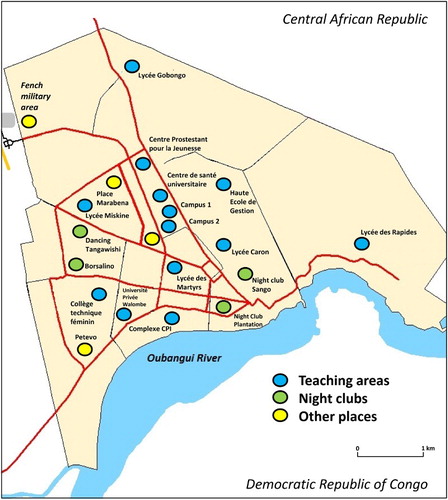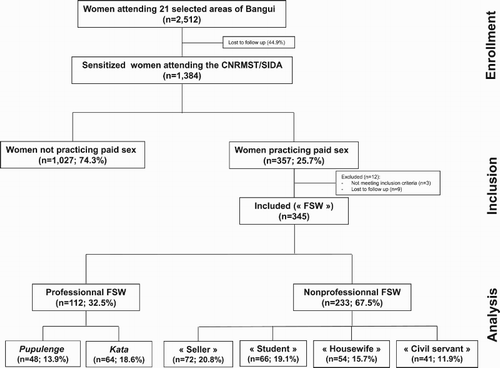Figures & data
Fig. 1. Map showing the location of inclusion study sites in Bangui, including 13 secondary schools and university attendance sites (blue round), 4 dancing places (Sango and Plantation nights clubs downtown; Tangawishi and Borsalmino dancings at periphery) (green round, and 4 other emplacements notoriously known as couples’ meeting places, such as the French military area near the airport (yellow round).

Fig. 2. Flow diagram showing enrolment, inclusion and data analysis for the study. A total of 2512 women attending 21 areas of couples’ meeting places, including 13 secondary schools and university places, were sensitized to the study purposes and proposed to attend the ‘Centre National de Référence des Maladies Sexuellement Transmissibles et du SIDA’ (CNRMST/SIDA), the main clinic for sexually transmitted infections in Bangui; 1384 (55.1%) of them thereafter voluntarily consulted with the CNRMST/SIDA for participating to the study; 357 (35.7%) sexually active women declared having more than 2 sexual partners, other than their regular partner, during the prior 3 months and having received money as their job or gifts in return for their sexual relationships (exclusive of a job), and were included as female sex workers (FSWs) for answering a face-to-face, structured sociodemographic and behavioural questionnaire. The group of professional FSWs included women declaring paid sex as their principal sources of income, and the other women who practiced occasional paid sex and had not declared themselves as FSWs were classified as non-professional or clandestine FSWs.

